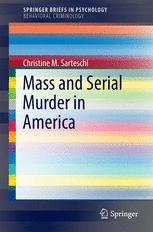

Most ebook files are in PDF format, so you can easily read them using various software such as Foxit Reader or directly on the Google Chrome browser.
Some ebook files are released by publishers in other formats such as .awz, .mobi, .epub, .fb2, etc. You may need to install specific software to read these formats on mobile/PC, such as Calibre.
Please read the tutorial at this link: https://ebookbell.com/faq
We offer FREE conversion to the popular formats you request; however, this may take some time. Therefore, right after payment, please email us, and we will try to provide the service as quickly as possible.
For some exceptional file formats or broken links (if any), please refrain from opening any disputes. Instead, email us first, and we will try to assist within a maximum of 6 hours.
EbookBell Team

0.0
0 reviewsThis timely reference examines the psychological and social phenomena of mass and serial murder, bringing scholarly depth to a frequently sensationalized subject. Its review of the literature features case studies of serial and mass murderers to expand on salient theories of evil, with biopsychosocial profiles highlighting core personality traits, particularly malignant narcissism, associated with psychopathy and its often deadly outcomes. The author’s insightful analysis separates misconceptions from reality, poses questions for critical thinking and discussion, and offers realistic suggestions for prevention. Public fascination with these violent figures—the mystique of serial killers and their popularity in the entertainment media—is explored as well.
Included in the coverage:
· Public interest in mass and serial murder.
· Concepts of evil: where it comes from, and why people kill.· Mass murder: classification, motivation, and typologies.
· Serial murder: motivation and typologies.
· Current trends in prevention, and areas for improvement.
· Plus instructive case studies, both famous and less-known.Mass and Serial Murder in America is illuminating reading for undergraduate and graduate students and practitioners in social science disciplines such as criminal justice, criminology, social work, psychology, forensic psychology, and related fields. It will also find an audience among educators teaching courses in these areas, as well as interested laypersons.